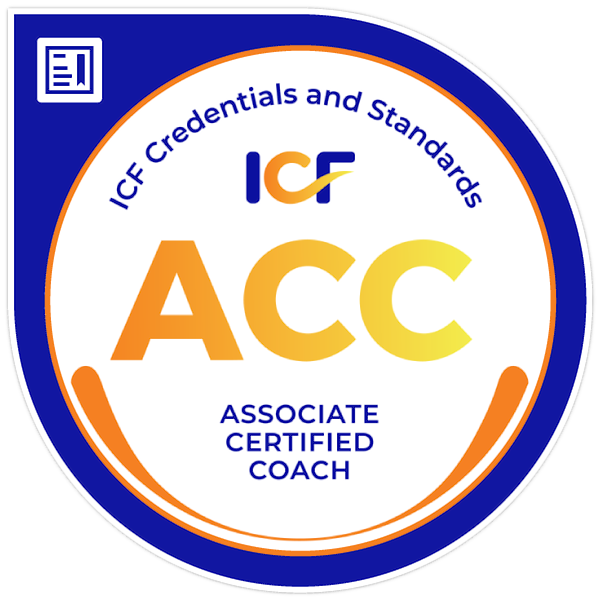It only takes one person to mobilize a community and inspire change. Even if you don't feel like you have it in you, it's in you. You have to believe in yourself. People will see your vision and passion and follow you. TEYONAH PARRIS To the ancient Greeks, to be inspired was to have the breath of life or the breath of God come within. The original Latin, inspirare, literally means 'to breathe upon or into.' Others interpret the meaning to be ‘in spirit’ or to have the 'spirit of God within.' Being inspired is what fills our hearts with joy and motivates us to higher thoughts and actions, whether you believe in God or not. And, as Teyonah points out in the opening quote, our inspiration, is oftentimes contagious. Here are 15 way you can connect to inspiration
What are some other ways you use to connect to inspiration? ANNOUNCEMENT Early Bird Pre-enrollment Begins April 30! Connect to Your Inspiration: Leading With Meaning & Purpose Leading With Meaning & Purpose is a leadership development experience that will walk you through a step-by-step process that guides you on how to connect more powerfully to your inspiration and through a six-step process for developing your very own leadership philosophy. More importantly, it provides you with the strategies and tools to activate and leverage it so that you can amplify your leadership effectiveness. Meaning and purpose—inspiration—starts with you. To watch a video about the course and preview the course syllabus, click here: Leading With Meaning & Purpose Early Bird Pre-enrollment begins the week of April 30. Early birds who pre-enroll the week of April 30 (next week) can get 50% off the course by entering a coupon code. Watch this space and my LinkedIn post next Sunday and throughout the week for the code. The course opens for engagement on May 7. Have an amazing journey today! Alan Mikolaj is a coach and leadership development consultant with 15+ years of experience. He is passionate about helping leaders transform their leadership, their teams, and their organizations. Impactful, professional approach driven by a passion for meaning and purpose, a growth mindset, and a commitment to excellence and service in order to drive change and results. Alan maintains the ethics and standards of behavior established by the International Coaching Federation (ICF), including the standards regarding confidentiality. You can learn more about them on the ICF website. Transformational change starts with a conversation! Schedule your free, one-hour session by clicking here: Discovery Conversation with Alan Or call or email me: Contact Page
0 Comments
Indeed, some scholars have suggested that communicating purpose is the most central of all leader behaviors, because it infuses work with meaning and direction. ANDREW CARTON, CHAD MURPHY, & JONATHAN CLARK A (Blurry) Vision of the Future: How Leader Rhetoric about Ultimate Goals Influences Performance The alarm has sounded and people are responding. Employees and leaders are craving greater meaning and purpose, not just at work, but in their lives. For example, a 2021 McKinsey article reports that nearly two-thirds of US-based employees said that the pandemic has caused them to reflect on their purpose in life. The authors say (emphasis added), "Employees expect their jobs to bring a significant sense of purpose to their lives. Employers need to help meet this need, or be prepared to lose talent to companies that will." If you have a retention problem, consider the stark possibility that the lack of meaning and purpose may be a strong contributor. If your employee engagement is not where you want it to be, a need for greater meaning and purpose may be part of the reason why. And you can say that about productivity, revenue and financials, and wellbeing, as well. The research is clear. Forbes reports, that employee disengagement is at a 10-year high. And Gallup reports that one of the engagement elements that declined the most was a connection to the mission or purpose of the company. If leaders don't do something, matters are only going to get worse. And, according to Great Place to Work and a host of others, those organizations that do not prioritize leading with meaning and purpose do in fact have lower engagement, productivity, innovation, revenue and financials, wellbeing, and increased or continued retention problems. On the flip side of that, purpose is prioritized by the 100 Best Companies to Work For in 2022, as highlighted by Great Place to Work, and those companies outperform those who do not on all of the above metrics. What may be the most important metric of all is that leaders who lead with meaning and purpose are simply more effective. What may be the most important metric of all is that leaders who lead with meaning and purpose Awareness Unfortunately, many leaders and executives are seeing themselves, their teams, and their organization through the lens of the unrealistic optimism bias. It's happening to to other leaders, but not to me. It's happening in other organizations, but not to us. It’s important for leaders to start with the assumption that their employees are disengaged and that they could lead with greater meaning and purpose. Employees value purpose & meaningful work. How much? A BetterUp Labs report, Meaning and Purpose at Work, states that 9 out of 10 career professionals--that's 90%—told researchers that they would sacrifice 23 percent of their future earnings—an average of $21,000 a year—for "work that is always meaningful." That's about as much as most people pay for their mortgage or rent in a year! Almost 50 years ago, neurologist, psychiatrist, philosopher, author, and Holocaust survivor, Victor Frankl, founded logotherapy with the premise that our primary motivational force is to find meaning or purpose in life. Both Abraham Maslow and Stephen Covey point out that having a strong devotion to a life purpose or calling is—without exception—a quality of self-actualized and highly effective people, respectively. And more recently, Marty Seligman, the father of positive psychology, lists in his book, Flourish, the five core elements of flourishing. Purpose is one of them. Purpose is a core element of human flourishing. Clarity is a superpower! How can a leader lead and live by their core values and principles if they're not even clear about what they actually are? How can a leader leverage and communicate about their meaning and purpose effectively? How does a leader help others find greater meaning and purpose at work? How does a leader set meaningful developmental goals in order to amplify their leadership effectiveness? What does something like that even look like? Developing, clarifying, leading, and living by a leadership philosophy is the answer. It is the foundation of all other leadership competencies and KSAs. As I pointed out last week, Kouzes and Posner report that those leaders who rated themselves among the top 20% of leadership philosophy clarity scored 110% higher on pride in their organization, commitment to their organization’s success, their willingness to work hard, and their overall effectiveness than those who are not clear about their leadership philosophy. Very few organizations provide their leaders with a step-by-step guide or process to teach leaders how to lead with greater meaning & purpose—to develop and lead by a leadership philosophy connected to the organization's mission, values, strategy, and goals. Leading With Meaning & Purpose Leading With Meaning & Purpose is a leadership development experience and course coming out next month. It will walk you through a step-by-step process that guides you through developing your own leadership philosophy. More importantly, it provides you with the strategies and tools to activate and leverage it so that you can amplify your own leadership effectiveness. Meaning and purpose starts with you. To watch a video about the course and preview the course syllabus, click here: Leading With Meaning & Purpose Pre-enrollment and launch discounts will be available soon. Have an amazing journey today! Alan Mikolaj is a coach and leadership development consultant with 15+ years of experience. He is passionate about helping leaders transform their leadership, their teams, and their organizations. Impactful, professional approach driven by a passion for meaning and purpose, a growth mindset, and a commitment to excellence and service in order to drive change and results. Alan maintains the ethics and standards of behavior established by the International Coaching Federation (ICF), including the standards regarding confidentiality. You can learn more about them on the ICF website. Transformational change starts with a conversation! Schedule your free, one-hour session by clicking here: Discovery Conversation with Alan Or call or email me: Contact Page John is a senior vice-president who really strives to lead as effectively as he can. However, he and his team are once again facing flat revenue growth, slightly declined engagement scores and productivity, and they're having retention issues. Stress levels are high and he hasn't been getting the sleep that he should. He's tried everything and he doesn't know what else to do. One thing he hasn't considered is leading with greater meaning and purpose. He hasn't paused to reflect on his own meaning and purpose and how that connects to his team and organization. He doesn't have a set of personal core values, a life mission, or a leadership philosophy that he practices, leads, and lives by. No one's taught him how to do that. He's not alone.  Few leaders and organizations are treating leading with meaning and purpose as a business priority, much less as a business imperative. This is unfortunate because neglecting meaning and purpose results in lower engagement, productivity, innovation, revenue and financials, wellbeing, and increased or continued retention problems. Conversely, for those companies listed in the 100 Best Companies to Work For in 2022 by Great Place to Work, purpose is prioritized and they outperform those who do not on all of those metrics. And, Harvard Business School found that companies whose employees feel a sense of purpose at work and believe their leaders set clear direction and expectation, outperform the stock market by 6.9% and even greater returns when middle managers and individual contributors experience purpose and clarity. Add to these findings that hundreds of studies have demonstrated solid links between greater meaning in life and greater wellbeing (both psychologically and physically). For example, Diener and Seligman reported in 2004, "people high in wellbeing function more effectively than people low in well-being. They are likely to have more successful relationships, to be more productive at work, to have higher incomes, and to have better physical and mental health." With so many positive outcomes associated with it, it's important for leaders today to make greater meaning and purpose a business and personal imperative. But first, we must understand what it is and what drives it. What is meaning in life? In last week's blog, The Science of Meaning in Life, we discovered that meaning and purpose at work falls under the umbrella term meaning in life and that it consists of three components:
Dr. Isaac Prilleltensky said in a recent Psychology Today article that "Mattering consists of feeling valued, by self and others; and adding value, to self and others. The more you associate with people who make you feel valued, and who add value to your life, the happier and healthier you’ll be. " What drives meaning in life? In a recent review of the literature, Researchers Laura King from the University of Missouri and Joshua Hicks from Texas A&M University, report findings on the drivers of or pathways to greater meaning and purpose. Among the drivers are positive affect or feelings of happiness and fun, age (yes the link becomes stronger as we age), social connections, religion and worldviews, and a sense of our own mortality. And while each of these deserve greater scrutiny (watch this space), it's the last two drivers that are most compelling for leaders who want to lead with greater meaning and purpose. They are what the researchers termed the self and mental time travel. The self When the researchers elaborated on what they meant by the self, I couldn't help but think of the integration of increased self-awareness and a clear, coherent life story into a life mission statement and/or a leadership philosophy statement (including our core values). There is abundant evidence that demonstrates that leading by a leadership philosophy positively impacts all types of business metrics, most notably leadership effectiveness. For example, Kouzes and Posner report in The Leadership Challenge on a study they did that compared leaders who had high clarity with those who had low clarity of their leadership philosophy. Those who rated themselves among the top 20% of leadership philosophy clarity scored 110% higher on pride in their organization, commitment to their organization’s success, their willingness to work hard, and their overall effectiveness than those who are not clear about their leadership philosophy. Unfortunately, most organizations do not have a clear, step-by-step guide or process to teach leaders how to develop a leadership philosophy or how to lead with greater meaning & purpose—in other words, how to use it in their leadership. A new course coming out next month, does just that. Leading With Meaning & Purpose is an empirically-driven, engaging, self-directed course. You will learn why leading with meaning and purpose is so important for leaders today and walk through a proven step-by-step process for developing your very own, personal leadership philosophy. You will also discover best-practices, tools, and strategies to lead and live by your leadership philosophy. Mental time travel Part of the process of developing a leadership philosophy and then living and leading with greater meaning and purpose requires that one pauses, unplugs, and contemplates their past, present, and future selves. Nostalgic memories enhance and help us maintain meaning in our lives and lessons-learned from disappointments, failures, and even tragedies add to our life-understanding and coherence. And, imagining our future self and linking it to our past creates greater coherence and provides motivation to show up with greater authenticity and purpose. The researchers found "that detailed and vivid mental simulations were more likely to lead to enhanced meaning in life compared to less detailed thoughts." The Leading With Meaning & Purpose course will walk you through a step-by-step process that guides you through developing your own leadership philosophy and provides you with the strategies and tools to lead and live with greater meaning and purpose. Meaning and purpose starts with you. Pre-enrollment discounts for early birds will be available soon. SOURCES Amire, R.(2022, May 10). Purpose at work predicts if employees will stay or quit their jobs. Great Place to Work Institute. Amire, R.(2022, July 18). The best workplaces for millennials offer meaning and purpose. Fortune Media. Diener, E., & Seligman, M. E. (2004). Beyond money. Psychological Science in the Public Interest, 5 (1), 1-31. Washington, DC: Sage Publications. King, L.A. & Hicks, J.A. (2021). The meaning in life. Annual Review of Psychology, 72, (561-584). Psychology Today Contributors. (2023, March 7). 21 Rules to live by. Psychology Today. Steger, M.F. (2017). Meaning in life and wellbeing. In M. Slade (Ed.), Wellbeing, Recovery and Mental Health (pp. 75-85). Cambridge: Cambridge University Press. Have an amazing journey today! Alan Mikolaj is a coach and leadership development consultant with 15+ years of experience. He is passionate about helping leaders transform their leadership, their teams, and their organizations. Impactful, professional approach driven by a passion for meaning and purpose, a growth mindset, and a commitment to excellence and service in order to drive change and results. Alan maintains the ethics and standards of behavior established by the International Coaching Federation (ICF), including the standards regarding confidentiality. You can learn more about them on the ICF website. Impactful change starts with a conversation! Schedule your free, one-hour session by clicking here: Discovery Conversation with Alan Or call or email me: Contact Page Meaning and Purpose at Work Meaning and purpose at work has become a crucial factor for employees, leaders, and organizations like never before. I've written about it before and most recently in January and February of this year . My new course that will be released in the next couple of months, Leading With Meaning and Purpose, will guide you as a leader towards leading and living with greater meaning and purpose. Leading with greater meaning and purpose will positively impact your employee retention and engagement, organizational pride, well-being (both physical and psychological), life satisfaction, productivity, financial success, and most importantly, your overall leadership effectiveness. Meaning in Life Meaning and purpose at work falls under the more global term meaning in life. But what is that? We might have some idea, but thinking about it from a scientific perspective highlights how formidable it can be to get at something so subjective empirically. Researchers Laura King from the University of Missouri and Joshua Hicks from Texas A&M University recently reviewed the literature in order to demystify meaning and to find out what defines it, how researchers are measuring it, what its correlates are, and they bring together life experiences that have been shown to enhance meaning in life. In today's blog, I summarize the three facets they identified that define meaning in life and I offer some ideas about how you can integrate them into your leadership and put them into action with your team. But, let's first define the term. Defining Meaning in Life The definition of meaning in life oft cited and that has the greatest consensus in the literature was offered in 2009 by Dr. Michael F. Steger of the Colorado State University. He defines meaning in life as: ...the extent to which people comprehend, make sense of, or see significance in their lives, accompanied by the degree to which they perceive themselves to have a purpose, mission, or overarching aim in life. Three facets of a global sense of meaning in life 1) Comprehension & Coherence We have a need to make sense of our lives and the world. And indeed, having an understanding of the nature of life and making logical connections and interconnections helps to drive meaning in life. When the world makes sense and we can integrate our life story and its future into a coherent whole, we are adding to our meaning in life. And when we can't, like those impacted by traumatic events such as the recent mass shooting at Covenant School in Nashville, serious to extreme psychological stress or even post-traumatic stress can result. A struggle ensues to make sense of it all. And those who do, the research shows, report less stress compared to those who do not. The researchers said, "Senseless tragedies can spur the need to make meaning. However, such experiences are not the norm. The vividness of these events notwithstanding, most of the time the world does make sense." Unfortunately for many of us, our attempts to make sense of other people and our interactions with them can be self-defeating. In his book Clear Leadership, Gervase Bushe calls this interpersonal mush. I wrote a brief summary of it back in February. If you'd like to check that out, just click here: The One Thing That May Be Compromising Your Team Culture, Your Influence, & Your Integrity. One group of behaviors that the researchers report that promotes comprehension, and thus, greater meaning in our lives, are routines and rituals. Things that bring order and predictability can quietly enhance meaning in life. I've had a morning and evening ritual around my life mission, leadership philosophy, and core values for almost 20 years and I encourage leaders to develop their own routines and rituals every chance I get. And, after traumatic events, one highly recommended intervention is to return to your normal routines and rituals as soon as possible. 2) Purpose The second facet is having purpose. Having a sense of purpose is synonymous with meaning in life for many people. It's having a clearly articulated answer to the age-old question, "Why am I here?" When we have a clear sense of purpose, it organizes and drives purposeful goals, helps us manage behaviors, and provides a sense of deeper meaning. It promotes greater goal commitment and engagement with our goals. It gives us a reason to get up in the morning. Purpose is predictive of physical health, including mortality rates, resilience in the face of adverse situations, and delayed onset of a host of health problems and health-related behaviors. Both Abraham Maslow and Stephen Covey discovered that having a strong and clear sense of purpose is—without exception—a quality of self-actualized and highly effective people, respectively. Many people find purpose through religion and/or spirituality. 3) "I matter" / Significance Believing that "I matter" and that my life has significance, or what the researchers call mattering, is the third facet of meaning in life. It refers to the extent to which a person believes their life counts—that their existence has and will have a lasting impact on the world. It's the belief that I am making a difference in the world. It's also about leaving a legacy for future generations. Parenting and leadership are two prime examples. Experimental findings show that the reverse—undermining perceptions of mattering—detracts from and diminishes meaning in life. Feelings of insignificance predict profound negative outcomes, including suicidal ideation, suicidal attempts, antisocial behaviors (such as mass shootings), and even cause some to commit suicidal terrorist attacks. Being connected to others and being appreciated drives our sense of mattering and being excluded or forgotten can negatively impact our sense of mattering. This knowledge can have profound impact on group or team cohesion, diversity and inclusion efforts at work, and in society at large.  How a leader can leverage meaning in life Here are seven ways a leader can leverage these findings with their leadership and teams:
Have an amazing journey today! Alan Mikolaj is a coach and leadership development consultant with 15+ years of experience. He is passionate about helping leaders transform their leadership, their teams, and their organizations. Impactful, professional approach driven by a passion for meaning and purpose, a growth mindset, and a commitment to excellence and service in order to drive change and results. Alan maintains the ethics and standards of behavior established by the International Coaching Federation (ICF), including the standards regarding confidentiality. You can learn more about them on the ICF website. Impactful change starts with a conversation! Schedule your free, one-hour session by clicking here: Discovery Conversation with Alan Or call or email me: Contact Page |
Alan Mikolaj
Alan Mikolaj is a a professional, experienced, positive, and passionate speaker, leadership and organizational development consultant, change agent, author, and coach. He holds his Master of Arts degree in Clinical Psychology from Sam Houston State University. He is a certified graduate coach from Coaching Out of the Box and holds his ACC and membership with the International Coaching Federation (ICF). Free Discovery Conversation!
Impactful change starts with a conversation! Schedule your free, one-hour session by clicking here: Discovery Conversation with Alan
Or call or email: Contact Page In his third book, A Travel Guide to Leadership, Alan offers you simple, fundamental, and powerful lessons that have the power to transform you, your relationships, and your career.

Blog Archives
July 2024

Linked2Leadership
Ranked #1 Business Blog! |
|
CONTACT
TEL: 346-291-0216 EMAIL: [email protected] SCHEDULE TIME WITH ALAN Free Discovery Conversation with Alan |



















